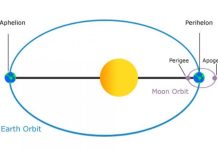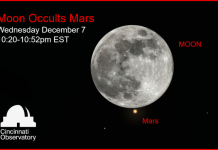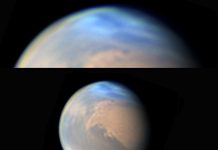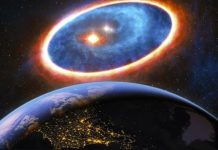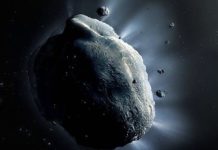The Lyrid meteor shower
Earth is entering a stream of debris from Comet Thatcher, source of the annual Lyrid meteor shower. Peak night is expected on April 21-22.
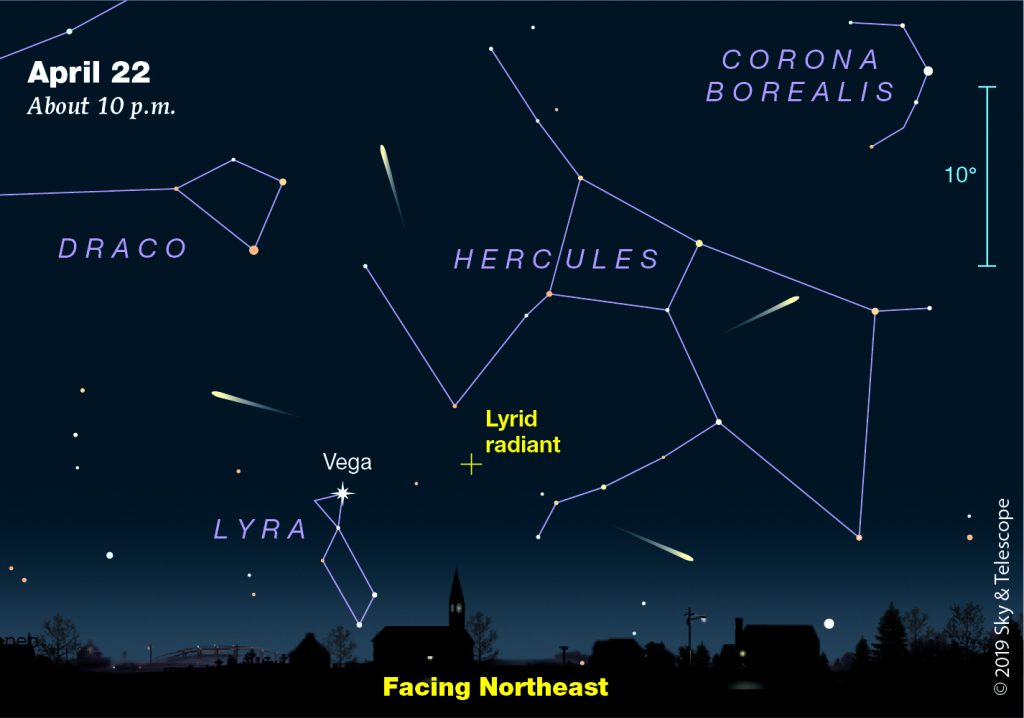
Normally, the Lyrids produce 10 to 20 meteors per hour. This year, however, bright moonlight will overwhelm all but the brightest meteors, limiting visible rates to just a few per hour.
Incoming solar wind
A southern hole in the sun’s atmosphere is facing Earth and spewing a stream of solar wind in our direction. Estimated time of arrival: April 23-24.
Minor geomagnetic unrest and polar auroras are possible when the gaseous material arrives.
Pollen corona
The same pollen that makes you sneeze can also make beautiful coronas around the sun, like this one photographed on April 18th by Ujvárosi Beáta of Szerencs, Hungary:
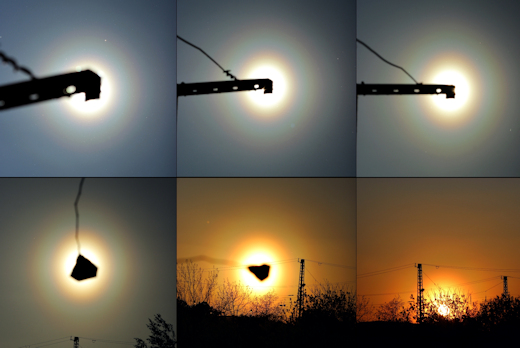
“We had warm, sunny weather with strong winds today,” says Beáta. “These conditions are perfect for tiny pollen grains to be lifted and carried in the air.“
Specks of pollen are very small, and when they float through the air they diffractsunlight, forming the softly-colored rings of light in Beáta’s photo. Tiny crystals of ice or droplets of water in the air can do much the same thing – but unlike pollen they do not cause sternutation.







